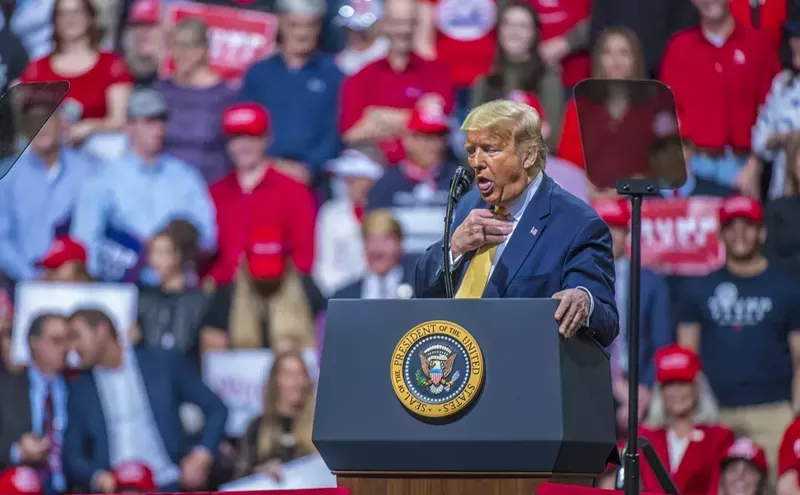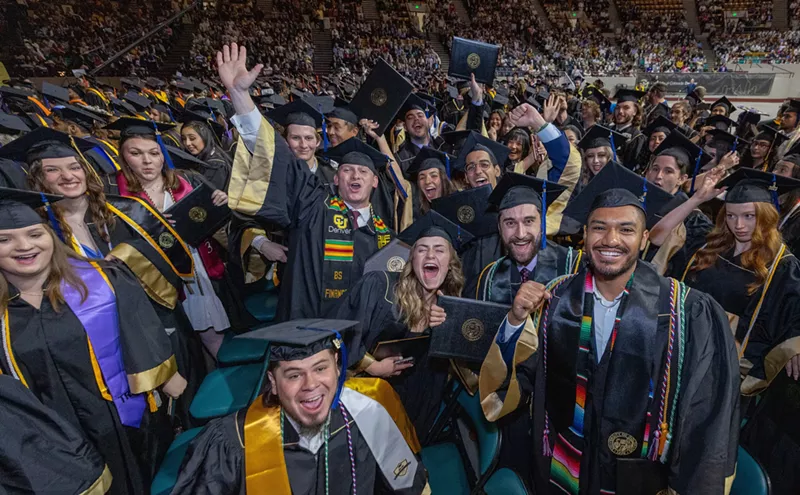Now, at last, Romanoff's come clean -- or at least cleaner -- by releasing a statement about what jobs he says were offered if he'd stay out of the primary. But his campaign isn't exactly shouting about the issue from the rooftops, despite local and national press that appears to be doing him nothing but good.
Multiple calls have been placed to Romanoff's campaign manager, Bill Romjue, and Roy Teicher, the latest in his apparently revolving collection of spokesmen, but they haven't responded at this writing. When and if they do, we'll update this post.
During a February interview with Westword, however, Romanoff was quite open about the heavy-handed methods used by Washington power brokers to keep him on the sidelines. Here's a key passage:
"There's obviously an incumbent protection racket in D.C. that has a distaste for democracy. They don't like the primaries. They circle the wagons and protect their own -- and they made that clear to me before I even got into this race. They said, 'You've got a nice little reputation you've built for yourself. It would be a shame if anything happened to it.'"After that, "I told somebody that I expected to wake up with a donkey's head in bed beside me. But I don't think that sits well with most people in this state. In Colorado, we don't like to be told what to do."
After Romanoff released his jobs-offer statement, in which he detailed contact from White House deputy chief of staff Jim Messina (who, presumably, has never dueted with Kenny Loggins), Obama administration spokesman Robert Gibbs responded. As quoted by NationalJournal.com, he said, "Andrew Romanoff applied for a position at USAID during the Presidential transition. He filed this application through the Transition on-line process. After the new administration took office, he followed up by phone with White House personnel.
"Jim Messina called and e-mailed Romanoff last September to see if he was still interested in a position at USAID, or if, as had been reported, he was running for the US Senate. Messina wanted to determine if it was possible to avoid a costly battle between two supporters."
In other words, Gibbs is implying that the White House was merely following up on Romanoff's previous application. But the timing of this contact, not to mention the reference to avoiding a "costly battle," suggests that the White House's interest in Romanoff was more about the possible damage he could do to Bennet's chances in November, not his sterling qualifications.
Predictably, the national media is paying close attention to this brouhaha, with recent items popping up from the Washington Post, the New York Daily News, the ABC television network and more.
This attention helps Romanoff by putting his name before a wider number of voters here and beyond. In addition, the controversy makes this political veteran seem like an outsider and a rebel, which could play well with the masses given the current anti-incumbent fever seemingly sweeping the populace.
Taking advantage of this situation without burning every bridge between him and the Democratic Party won't be easy for Romanoff. Perhaps that explains why his team isn't rushing to return calls. But the upside is potentially big if they play things right.
Look below to read Romanoff's statement, as well as an e-mail from the White House's Messina:
Andrew Romanoff statement:
I have received a large number of press inquiries concerning the role the White House is reported to have played in my decision to run for the U.S. Senate. I have declined comment because I did not want - and do not want - to politicize this matter.A great deal of misinformation has filled the void in the meantime. That does not serve the public interest or any useful purpose.
Here are the facts:
In September 2009, shortly after the news media first reported my plans to run for the Senate, I received a call from Jim Messina, the President's deputy chief of staff. Mr. Messina informed me that the White House would support Sen. Bennet. I informed Mr. Messina that I had made my decision to run.
Mr. Messina also suggested three positions that might be available to me were I not pursuing the Senate race. He added that he could not guarantee my appointment to any of these positions. At no time was I promised a job, nor did I request Mr. Messina's assistance in obtaining one.
Later that day, I received an email from Mr. Messina containing descriptions of three positions (email attached). I left him a voicemail informing him that I would not change course.
I have not spoken with Mr. Messina, nor have I discussed this matter with anyone else in the White House, since then.
About Andrew Romanoff:
Elected to four terms in the Colorado legislature, Andrew Romanoff was Speaker of the House from 2005 to 2009. He led the Democrats to their first back-to-back majorities in more than 40 years. His leadership earned national recognition, including Governing magazine's top honor as Public Official of the Year.
E-mail from Jim Messina:
From: Messina, Jim (e-mail address redacted)Date: Fri, Sep 11, 2009 at 3:24 PM
Subject:
To: Romanoff, Andrew (e-mail address redacted)
Deputy Assistant Administrator for Latin America and Caribbean, USAID
As one of five geographic bureaus in the Agency and as a major contributor to the broader U.S. foreign policy objectives in the region, the Bureau for Latin America and Caribbean (LAC) promotes stable democracies, prosperous economies, secure borders, and cooperative neighbors in the Western Hemisphere. The LAC Bureau is taking a proactive approach to maximizing the impact of foreign assistance and continuing its efforts to transform and improve business operations that support Agency-wide reforms. In line with the new Foreign Assistance Framework, priorities include consolidating democracy, fostering growth through free trade and business opportunities, investing in people through education and health, and enhancing security by promoting alternatives to illegal drug cultivation. Additionally, the Bureau is implementing a number of highly visible programs in the Western Hemisphere, including support for the Dominican Republic-Central American Free Trade Agreement (DR-CAFTA); the Andean Counter-Narcotics Initiative; the Global Fund to Fight Aids, Tuberculosis, and Malaria; and the recommendations for the Presidential commission for Assistance to a Free Cuba.
This position reports to the Assistant Administrator for Latin America and the Caribbean. The position functions as advisor to the Assistant Administrator, LAC. The position is responsible for oversight and general management of one or more LAC Bureau offices.
Director, Office of Democracy and Governance, USAID
The Director is the chief operations officer of the Office and a principal advisor to senior Bureau and USAID management in defining the scope and objectives of the Agency's and the Administration's initiatives to support democracy and foster good governance. Activities of the Director include oversight for all staffing and personnel functions in the Office, as well as oversight of technical officer recruitment, selection, and placement, and direct supervision of the senior democracy and governance advisors for the Agency. The Director provides program definition, design and oversight, and evaluation for USAID's democracy and good governance programs and serves as a senior advisor in the administration for developing democracy and good governance program strategies. The Director supports democracy and good governance programs in all parts of the Agency and leads in the development of strategic approaches to democracy support and good governance. The Director represents the Agency at the senior level with other U.S. Government departments and agencies, with senior officials of foreign governments, with senior political officials from host countries, and with senior officials of U.S. implementing organizations. This position reports to the Assistant Administrator for Democracy, Conflict and Human Rights (DCHA).
Director, U.S. Trade and Development Agency (USTDA)
USTDA was first created as part of USAID through the Foreign Assistance Act of 1961 and made independent in 1991. Their stated mission is to "advance economic development and U.S. commercial interests in developing and middle-income countries." Unlike Ex-Im , OPIC and other international development agencies, USTDA does not directly finance exports and development. Instead, the agency seeks to achieve its mission by making small grants to fund feasibility studies, reverse trade missions, conferences, trainings, and other technical assistance programs that link U.S. companies to overseas development projects. With a budget of $55.2 million (FY 2010) and a staff of 78 professionals (48 full-time, 25 contractors and 5 foreign-service nationals), USTDA's success is dependent on being able to seek out new opportunities, leverage its private and government relationships, and find development opportunities for both private business and larger federal foreign assistance/development agencies. A testament of USTDA's success is its ratio of grant dollars spent versus dollars in exports created, which is nearly 1:35. This position requires Senate confirmation.












